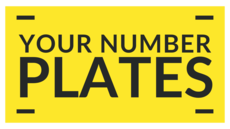Introduction: The Allure of Regional Plates
Regional plates offer more than mere identification they convey heritage, locality, and even status. From bustling London streets to quaint northern towns, a number plate can signify origin, history, and sometimes exclusivity. Their popularity continues to rise as drivers and collectors seek plates that speak to both identity and prestige.
Understanding UK Vehicle Registration System
How Area Codes Work
UK plates use area codes to identify the location where a vehicle was first registered. The first two letters denote the region, while subsequent numbers and letters provide chronological and unique identifiers. This system balances legality, traceability, and local affiliation.
Historical Evolution of UK Number Plates
Initially, registrations were simple letters representing towns or cities. Over decades, evolving population and vehicle growth necessitated numeric codes, age identifiers, and standardized formats, producing the modern alphanumeric plates familiar today.
Regional Identity Through Plates
Local Pride and Cultural Significance
For many, a regional plate is a badge of hometown pride. Displaying a plate with an area code like “M” for Manchester or “B” for Birmingham evokes connection, loyalty, and local identity.
Collectibility and Status Symbols
Certain regional codes gain prominence due to scarcity or association with high-profile areas. Owning a plate from a coveted region can confer status, attracting enthusiasts and collectors alike.
Popular UK Area Codes and Their Meanings
London: “L” and “LD” Series
London plates are highly sought after, reflecting the city’s prestige. Codes like “L” and “LD” often command higher resale values due to their association with the capital.
Birmingham: “B” Series
Birmingham, a historic industrial hub, produces plates that are widely recognised. The “B” series carries regional pride and a practical appeal for midlands buyers.
Manchester: “M” Series
Manchester’s “M” codes are popular in the north, symbolizing both city prominence and cultural significance in music, sport, and commerce.
Other Notable Regional Codes
Areas such as Liverpool (“LIV”), Leeds (“LS”), and Glasgow (“G”) have plates that are collectible due to historical significance or limited issuance. Each code reflects locality and, increasingly, desirability.
Factors Influencing Popularity of Certain Codes
Population Density and Vehicle Numbers
Regions with higher vehicle registrations naturally produce more plates, increasing familiarity and market demand. London, Manchester, and Birmingham dominate due to population scale.
Media Exposure and Celebrity Influence
High-profile vehicles and celebrity endorsements elevate certain area codes, creating aspirational demand among ordinary motorists.
Ease of Recognition and Pronunciation
Plates that are easy to read, remember, and pronounce tend to attract more buyers, enhancing both practical and aesthetic appeal.
The Role of Age Identifiers in Regional Codes
Understanding Year Markers
UK plates incorporate age identifiers that signify the vehicle’s registration year. These markers can influence perception, collectibility, and valuation.
Influence on Market Value
Older or “classic” age identifiers combined with popular area codes often command higher prices due to rarity and nostalgia, making them prized among collectors.
Regional Plates as Investment Assets
High-Demand Areas and Premium Pricing
Certain area codes, especially from metropolitan regions, consistently appreciate in value. Savvy investors monitor trends to purchase and resell plates at premium rates.
Trends in Resale Values
Urban codes with historical significance or celebrity association maintain stable demand, creating predictable investment opportunities within the number plate market.
Collector and Enthusiast Perspectives
Why Certain Codes Attract Collectors
Scarcity, historical relevance, and aesthetic appeal make specific regional codes collectible. Enthusiasts seek plates that combine identity, rarity, and visual impact.
Events and Auctions Driving Interest
Specialised auctions, automotive shows, and private dealer networks facilitate trading and elevate certain plates, reinforcing their status as coveted assets.
Impact of Regional Codes on Personalization Choices
Combining Area Codes with Custom Sequences
Dealers and buyers often combine regional codes with personalized sequences, creating unique plates that convey both locality and individuality.
Balancing Regional Identity and Individuality
The challenge lies in maintaining compliance while achieving a distinctive look. Thoughtful combinations of area codes and letters create plates that resonate both legally and aesthetically.
Legal Considerations and DVLA Compliance
Restrictions on Number Plate Transfers
DVLA regulations govern transfers between vehicles and individuals, ensuring authenticity and preventing fraudulent claims of origin. Adherence to these rules is essential for legal and insurance purposes.
Maintaining Authenticity and Avoiding Misrepresentation
Regional pride should not compromise compliance. Plates must accurately reflect issuance region and adhere to font, spacing, and material standards.
Future Trends in Regional Plate Popularity
Emerging Urban Centers
As cities expand and populations shift, new area codes gain recognition and desirability. Regional growth creates emerging markets for collectible and prestigious plates.
Digital Plates and Changing Preferences
Technological innovations, including digital and smart plates, may reshape preferences. However, traditional regional codes are likely to retain cultural and investment appeal.
Conclusion: Regional Plates as Symbols of Identity and Status
Regional plates encapsulate more than legality—they reflect locality, heritage, and social aspiration. Understanding the nuances of area codes, popularity drivers, and market trends allows collectors, dealers, and enthusiasts to appreciate their full value. Whether for pride, personalization, or investment, regional plates continue to captivate the UK automotive landscape.

